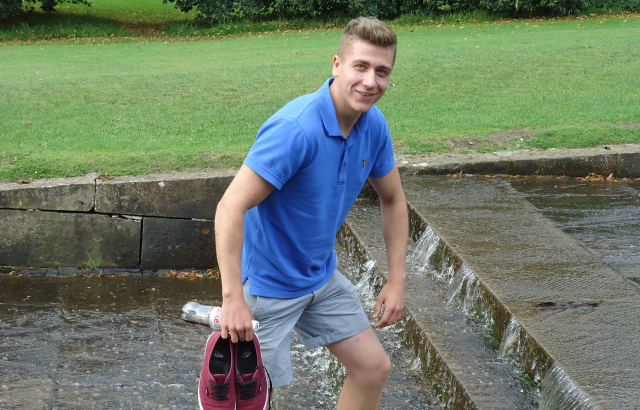

Stephen Hughes died in October 2014 aged just 23 following a diagnosis of myocarditis. His parents Hazel and Gary believe that a blood test developed by researchers we fund could have helped Stephen if it had been available when he started showing symptoms. Hazel shared the family's story with us.

“Each stage of his illness took a long time. In February 2014 he started feeling tired, breathless and experiencing stomach pains. His GP thought it might be a gastrointestinal issue. At this stage, this blood test could have indicated the cause of his symptoms. Even though there is currently no cure for myocarditis, Stephen could have been offered medication and told to rest.
“In April, Stephen’s legs swelled up and he was rushed to hospital. It was there that doctors told us he had a problem with his heart and first mentioned myocarditis. They then started him on medication.”
Currently, the gold standard test for myocarditis is a heart biopsy, an invasive and risky procedure. “Doctors did a biopsy in August, while they were undertaking open heart surgery on Stephen to fit a left ventricular assist device (LVAD).
“The biopsy confirmed Stephen had myocarditis and, due to the damage it had caused, he would need a heart transplant. He was put on the urgent transplant list in August.”
A donor heart was found in October, but tragically the operation was unsuccessful. Stephen died three days later, just 10 days before his 24th birthday.
Since his death Hazel, Gary, and Stephen’s friends have fundraised tirelessly to help fund research into myocarditis. “We don’t want any other families to lose someone they love, someone with everything to live for. By supporting research we can hopefully save other families from the heartbreak we’ve experienced.”
“Within a few months Stephen went from a young man who was fit and healthy and full of life, to having severe heart failure and needing to be pushed around in a wheelchair. These findings are a massively important step. We’ll never know for sure, but this test could have given him a chance, and maybe he would still be here today.”
Find out more about Professor Federica Marelli-Berg's research


